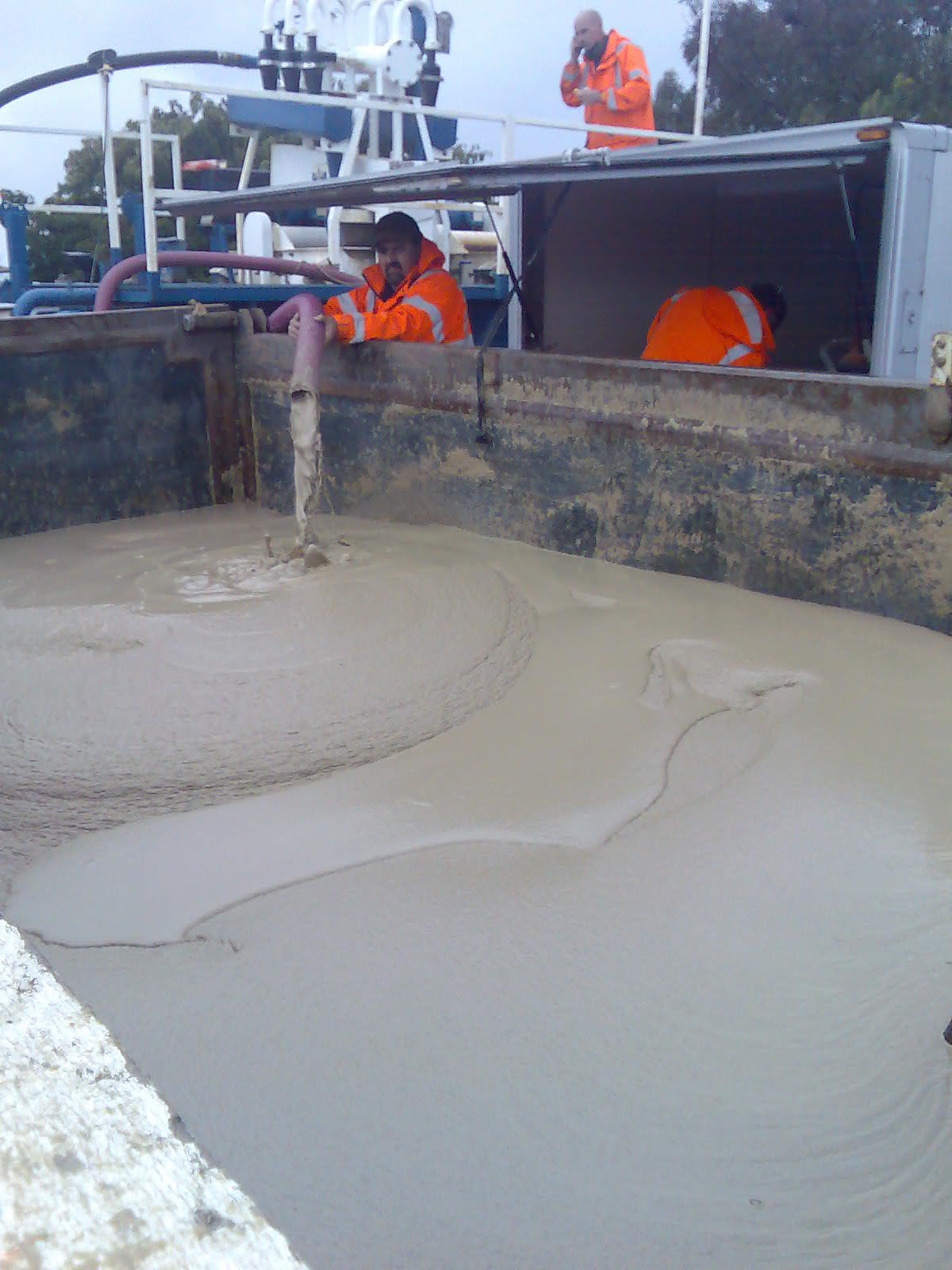September 2008 Vol. 63 No. 9
Business
HDD Tech: Getting Fluids To Pass The Paint Test

As if horizontal directional drilling contractors do not have enough issues to contend with in performing the contracted tasks, cleanup of the drilling operation is becoming increasingly difficult because of issues associated with the disposal of drill spoils.
This author has actually received several phone calls from drilling contractors who were sitting in the back seat of police cars for illegally dumping/discharging used drilling fluid.
Disposal issues may not be a big problem for contractors installing residential waterwells in rural communities, but can be a nightmare for large horizontal directional drilling contractors. They often have multiple drill crews working in heavily populated areas and constantly struggle to find environmentally responsible yet cost effective methods to dispose of drill spoils.
Landfills are not allowed to receive material containing free liquids, determined by a Paint Filter Test. Material is placed in a paint filter and if there are no liquids dropping out of the filter after five minutes, the material is considered to have no free liquids. Drill spoils containing free liquids can wreak havoc on a landfills leachate collection and treatment system, and can bog down trucks and other machinery operating in the facility.
Options
There are several options for getting drill spoils to pass a Paint Filter Test such as separating the solid phase from the liquid phase (dewatering), or solidifying the entire volume of material.
Centrifuge dewatering (separating the liquid phase from solids) is one method of processing leftover drilling fluid, and is currently used on some oilfield drilling operations as well as large HDD river crossings. Liquid/solids separation enhancement chemicals, such as those used for pH adjustments, coagulants and flocculants, are introduced into the drill spoils, which cause the solid particles to clump together into larger aggregates to improve the liquid/solids separation process. The material is then introduced into a mechanical separation device such as a horizontal decanting centrifuge, which spins at speeds high enough to exert as much as 3,000 times the force of gravity on the material in order to facilitate liquid/solids separation.
Centrifuge dewatering systems are capable of discharging crystal clear water (below 10 ppm total suspended solids) and dry solids while processing over 65 gallons per minute. The down side to centrifuge dewatering systems is that the equipment is very expensive to lease or purchase and must be operated by knowledgeable and experienced dewatering personnel, making the cost difficult to justify for smaller projects.
Solidification is another effective method for dealing with material containing free liquids such as drill spoils. Various materials such as cement kiln dust, fly ash, dirt and lime, have been used in the past to absorb free liquids. While effective, these products add bulk to the material being solidified, which increases disposal tipping fees and can be labor intensive in their application.
A new solidification process has recently emerged which uses a self contained pumping/mixing system to meter in a re agent at a maximum required dosage of 2 percent by weight, and is capable of processing at 65 to 70 gallons per minute. This system discharges slurry that will solidify within approximately 10 minutes and can be mixed with native soil and backfilled or pumped into pits, dump trucks, and or roll off boxes without adding significant bulk to the material being solidified.
Regardless of whether drill spoils are deemed hazardous (such as spoils from environmental remediation projects) or non hazardous, it is easier and more cost effective to dispose of material that can pass a Paint Filter Test. Contractors must be aware of local regulations for the disposal of drill spoils and explore available options and factor disposal cost into projects.
FOR MORE INFORMATION:
CETCO, ( 847) 818 7935, www.cetco.com




Comments